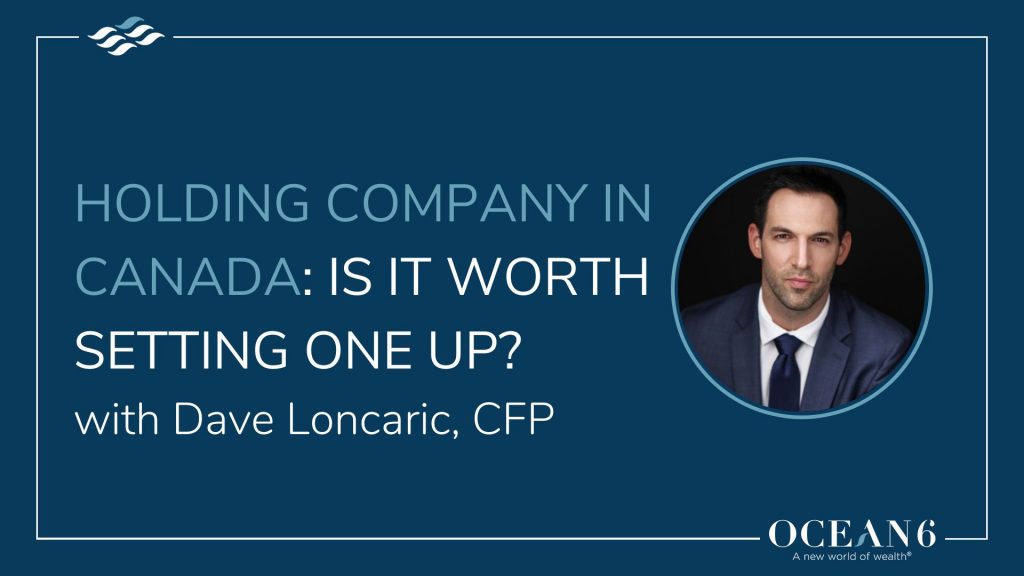As a business owner, you can structure your business using an operating company, holding company, and family trust.
However, many are unaware of each entity’s different roles and how they fit into your business.
In this blog, we will go over the purpose and benefits of an operating company, a holding company, and a family trust.
Operating Company vs. Holding Company vs. Family Trust
What is an operating company?
An operating company is an entity that conducts the business’s day-to-day operations, such as generating revenue and paying employees. One key benefit of an operating company is that it allows you to separate your personal assets from your business assets, limiting your personal liability if the business is sued or faces any legal issues.
What is a holding company?
On the other hand, a holding company is a separate entity that owns other companies or assets. Think of the operating company as the one running the business and the holding company as the one that owns it. A holding company can also own real estate, stocks, and other investments.
Setting up a holding company can provide tax benefits, liquidation benefits, creditor and asset protection, and estate planning and freezing benefits.
What is a family trust?
A family trust is a legal entity that holds assets for the family. Similar to a holding company, this can include real estate, stocks, and other investments. You can protect your assets from creditors, lawsuits, and other legal issues through a family trust.
There are many ways a trust can be set up. The family trust can own the operating company with the holding company as a beneficiary. Having a family trust can also be beneficial if you ever want to sell your operating company.
Holding Company and Family Trust: Which One is Right for You?
Now that you’re more familiar with these entities, how do you know which one you need and what’s the first step to setting these up?
For starters, every incorporated business must have an operating company, so if you aren’t incorporated yet, that’s step one. If you’ve been incorporated and the operating company is showing a profit beyond what you need for your operating expenses, it’s likely time to set up a holding company.
The Benefits of a Holding Company
Setting up a holding company can take you to the next level.
First off, the tax saving benefits. A holding company allows you to transfer retained earnings from the operating company to the holding company via tax-free dividends, giving you the flexibility to pay yourself as you need through dividends. Let me paint a picture of how beneficial this is: if you are in a very high tax bracket for 2022, you can have your dividends paid to your holding company to defer your income to the following year, 2023, and reduce your tax bill for 2022.
Another benefit of a holding company is creditor and asset protection. Keeping your assets like corporate investments and real estate in your holding company protects them from creditors. Doing this also gives you tax benefits if you ever liquidate.
(Check out this blog for a full rundown of a holding company’s benefits)
For many business owners, the combination of an operating company and a holding company is more than sufficient in helping them attain their goals with well-planned tax and investment strategies.
The Value of Having a Family Trust
A family trust can come in handy if you have plans to sell your business for well over $1,000,000. It’s structured so that it owns the shares of a privately held corporation controlled by you. When you sell the corporation, you and the beneficiaries in the family trust can take advantage of multiple lifetime capital gains exemptions (LCGE).
The LCGE applies to the sale of shares held by your corporation. The LCGE amount in 2023 is just over $971,000 per individual, meaning you would not pay any tax on the first $971,000 made from the sale of your business.
So, let’s say in this scenario, you, your spouse, and three children were all beneficiaries in the family trust. There would be a total exemption of over $4.8M upon the sale of your company owned by the family trust. For this tax planning strategy to work, the shares in your company need to meet several qualifying criteria. One of which is the shares must be held by the trust for a minimum of 24 months before being sold to qualify for the exemption.
When Should You Set Up a Holding Company and Family Trust?
A final consideration is when you should set up each of these entities. It’s difficult to know because every business owner’s situation is different.
It’s also hard to predict if you’ll sell your company in the future, especially if you just started building your business.
However, here are some things you want to note. There is a cost to set up each entity with annual upkeep costs. If you foresee the possibility of using a holding company or family trust, consider setting them up from the get-go to save yourself the work later on. Although a holding company and family trust can be added to your corporate structure down the road, the costs may be higher than simply setting them up right away due to the costs of restructuring your corporate setup.
Each entity serves a different purpose and benefits. Now that you understand the ownership structure, benefits, liabilities, and risks associated with each entity, you can use these entities to take your corporate structure to the next level and get closer to achieving your financial goals.
Watch a video on the topic
Having a financial planner on your team will ensure you’re carrying out strategies like this properly.
If you want to maximize your corporate structure and make the most of your wealth, book a call today.












